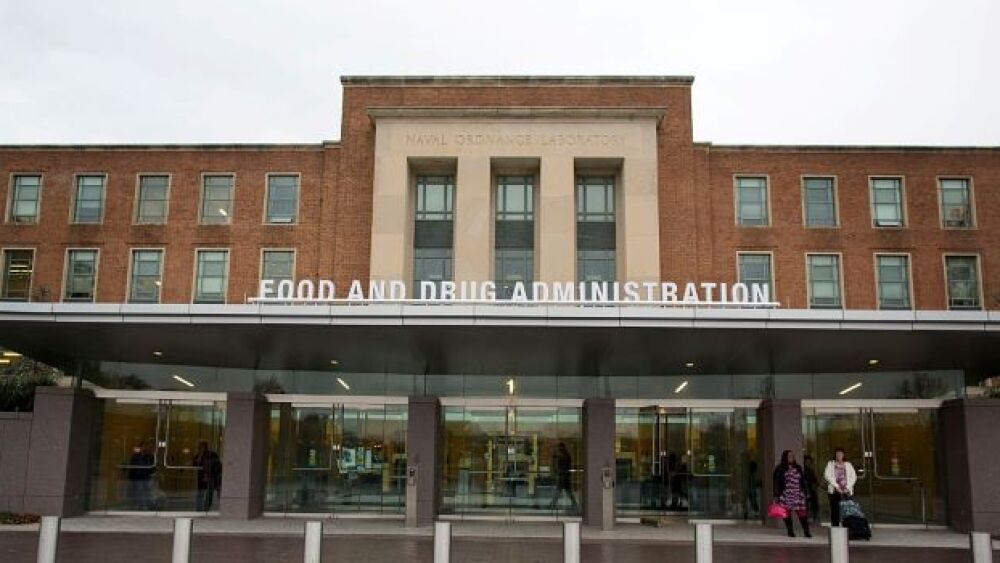A recent study found that over a span of ten years, the FDA approved cancer drugs approximately eight months earlier than the same drugs were greenlit by the European Commission (EC).
Al Drago/CQ Roll Call
A study recently published by U.S., U.K. and Canadian researchers found that over a span of ten years, the U.S. Food and Drug Administration approved cancer drugs approximately eight months earlier than the same drugs were greenlit by the European Commission (EC).
The study was published in JAMA Network Open by researchers from Imperial College London, Mayo Clinic, Queen’s University Cancer Research Institute in Kingston, Ontario, Brighton and Sussex University Hospitals NHS Trust in the UK, Vanderbilt University and Stanford School of Medicine.
The researchers note that the FDA and the European Medicines Agency are the two largest global drug regulators in the world, and “as such, they frequently set industry standards and guidance, routinely followed by other national regulatory agencies.” They analyzed submission dates, review length and approval relative to publication of the supporting clinical trial data in peer-reviewed journals that were approved by both the FDA and EMA between January 1, 2010 and December 31, 2019.
In that time, the FDA approved 85 cancer therapies before Europe did and four after. The drugs approved in Europe before the U.S. were AstraZeneca’s Lynparza (Olaparib, 3 days earlier), Pfizer’s Besponsa (inotuzumab ozogamicin, 50 days earlier), Novartis’ Lutathera (lutetium Lu-177 dotatate, 122 days earlier) and Janssen Oncology and Pharma Mar’s Yondelis (trabectedin, 2,958 days earlier).
Both Lutathera and Yondelis required resubmissions to the FDA after receiving initial Complete Response Letters (CRLs).
However, the FDA approved 85 cancer drugs a median of 241 days before Europe did. Thirteen of them were approved by the FDA before they were even submitted to the EMA. The median review time from submission to approval for all therapies was 200 days for the FDA and 426 for the EMA.
Interestingly, the FDA issued 31 accelerated approvals (35%) and the EMA issued 23 conditional marketing authorizations (26%). These types of approvals are designed to get certain cancer drugs to market faster, typically by basing the approval not on proof of clinical benefit, but on certain biomarkers. The clinical efficacy then needs to be proven with confirmatory clinical trials. In some cases, this has resulted in the drugs being pulled from the market.
Recent examples include Merck voluntarily withdrawing Keytruda (pembrolizumab) for metastatic small cell lung cancer (SCLC) with disease progression on or after platinum-based chemotherapy and at least one other prior line of therapy. Another is AstraZeneca’s withdrawal of Imfinzi in bladder cancer. In the case of Imfinzi’s accelerated approval, the Danube trial was supposed to confirm its effectiveness, but the drug did not meet the overall survival endpoints compared to standard of care.
The U.S. House of Representatives recently voted on a bill that would give the FDA more power to guarantee biopharma companies run the confirmatory trials. The bill must be passed by September or the agency will face funding gaps.
The research study found that of the 31 accelerated approvals granted by the FDA, 19 were eventually given regular approvals, three were withdrawn and nine retained the accelerated approval status while more confirmatory data is acquired. In Europe, there were 23 therapies granted conditional marketing authorization, 10 shifted to regular approval, one was withdrawn and 12 are awaiting further data.
A correlating point is Project Orbis, launched by the FDA’s Oncology Center of Excellence in May 2019. It created a framework for concurrent submission and review of oncology products among international partners. The partners include Australia, Brazil, Canada, Israel, Singapore, Switzerland and the UK. The FDA noted, “Collaboration among international regulators may allow patients with cancer to receive earlier access to products in other countries where there may be significant delays in regulatory submissions, regardless of whether the product has received FDA approval.”
In the study recently published in JAMA, researchers found that drug companies generally submit drug applications to the FDA earlier than to the EMA. “This may be partly driven by the greater market share and higher cost of new oncology therapies in the U.S. compared with Europe.” In fact, about 72% of companies submitted to the FDA before the EMA, even when the submissions are based on the same clinical trials. “However,” the authors noted, “submission to the EMA contained more complete and less preliminary data due to later submission times.”





